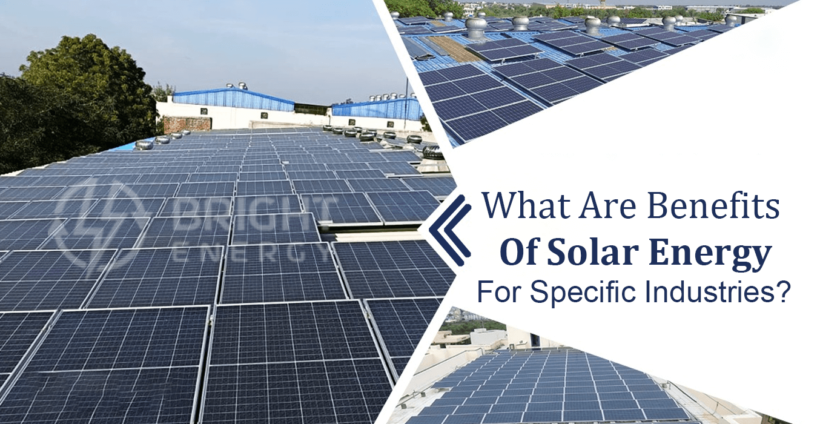
Solar energy offers numerous benefits for specific industries, contributing to their sustainability, cost savings, and environmental stewardship. Let’s explore some key industries and the advantages they can derive from utilizing solar energy.
-
Agriculture:
Solar energy can revolutionize the agricultural sector by providing a reliable and sustainable power source. Solar panels can be installed on farms to generate electricity for irrigation systems, water pumps, and machinery, reducing reliance on fossil fuels and lowering operational costs. Additionally, solar-powered greenhouse systems can regulate temperature and lighting, enhancing crop growth and yield.
-
Manufacturing:
Solar energy can significantly reduce energy costs for manufacturing facilities. By installing solar panels on rooftops or open spaces, manufacturers can generate clean electricity to power their operations. This helps stabilize energy expenses, improve financial viability, and enhance competitiveness. Solar energy can also contribute to meeting sustainability targets and reducing the carbon footprint of manufacturing processes.
-
Hospitality:
Hotels, resorts, and other hospitality establishments can benefit from solar energy in multiple ways. Solar panels can be installed on rooftops, parking lots, or open spaces to generate electricity for lighting, heating, and cooling systems. Solar-powered water heaters can provide hot water for guest rooms and swimming pools, reducing energy expenses and improving the overall sustainability profile of the property.
-
Healthcare:
Solar energy is a reliable and resilient power source for healthcare facilities. By installing solar panels on rooftops or ground-mounted systems, hospitals and clinics can ensure uninterrupted electricity supply, especially during grid outages or natural disasters. Solar energy also helps healthcare facilities reduce their operating costs, freeing up resources for patient care and improving the overall sustainability of the healthcare sector.
-
Education:
Schools and universities can benefit from solar energy in several ways. Solar panels can be installed on rooftops, carports, or open spaces to generate clean electricity for lighting, heating, and cooling systems. Solar energy systems can also serve as educational tools, allowing students to learn about renewable energy and sustainability firsthand. Moreover, solar installations can help educational institutions save money on energy expenses and redirect those funds towards educational programs.
-
Transportation:
The transportation industry can leverage solar energy for various applications. Solar-powered electric vehicle (EV) charging stations can be installed at parking lots, highway rest areas, and transportation hubs, enabling EV owners to charge their vehicles with renewable energy. Additionally, solar panels can be integrated into the design of electric buses, trains, and boats, reducing their reliance on grid electricity and lowering operational costs.
-
Data Centers:
Data centers consume substantial amounts of energy to power servers and cooling systems. Solar energy can help offset this electricity demand and reduce operating costs. By installing solar panels on rooftops or ground-mounted systems, data centers can generate clean electricity and potentially achieve energy self-sufficiency. Solar energy can also contribute to the sustainability goals of data center operators and reduce their carbon footprint.
-
Sports and Recreation:
Solar energy can benefit sports stadiums, arenas, and recreational facilities in various ways. Solar panels can be installed on rooftops, carports, or open spaces to generate electricity for lighting, scoreboards, and other operational needs. Solar-powered water heaters can provide hot water for locker rooms and swimming pools, reducing energy expenses and promoting sustainability in the sports and recreation industry.
-
Retail:
Retail businesses can embrace solar energy to reduce operational costs and showcase their commitment to sustainability. Solar panels can be installed on rooftops or as shade structures in parking lots, generating electricity to power lighting, HVAC systems, and other equipment. Implementing solar energy can lead to long-term cost savings and enhance the green image of retail establishments.
-
Non-Profit Organizations:
Solar energy can be particularly beneficial for non-profit organizations with limited budgets. By harnessing solar power, these organizations can reduce their energy expenses, redirecting those funds towards their core missions. Solar installations can also.
Related Cool Links:
- By: Admin
- Tags: Benefits Of Solar Energy For Specific Industries?, What Are The Benefits Of Solar Energy For Specific Industries?
- 0 comment

Leave a Reply